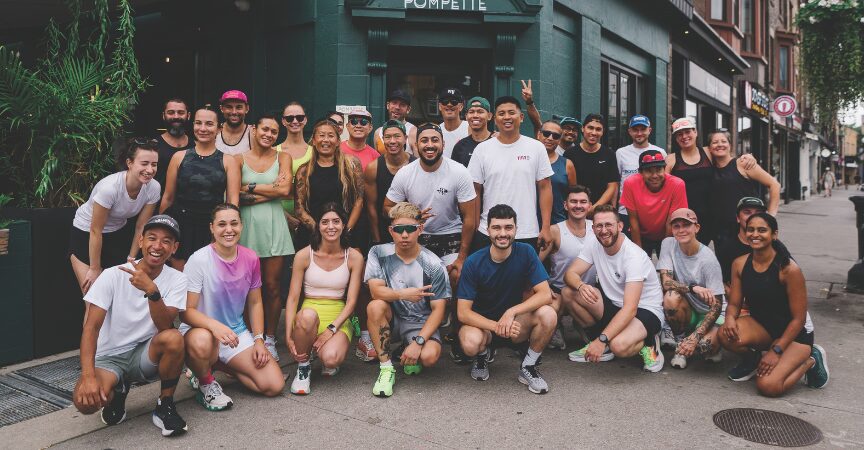The Long Run: The Food Runners Movement is Gaining Ground on Mental Health & Wellness for the Hospitality Industry
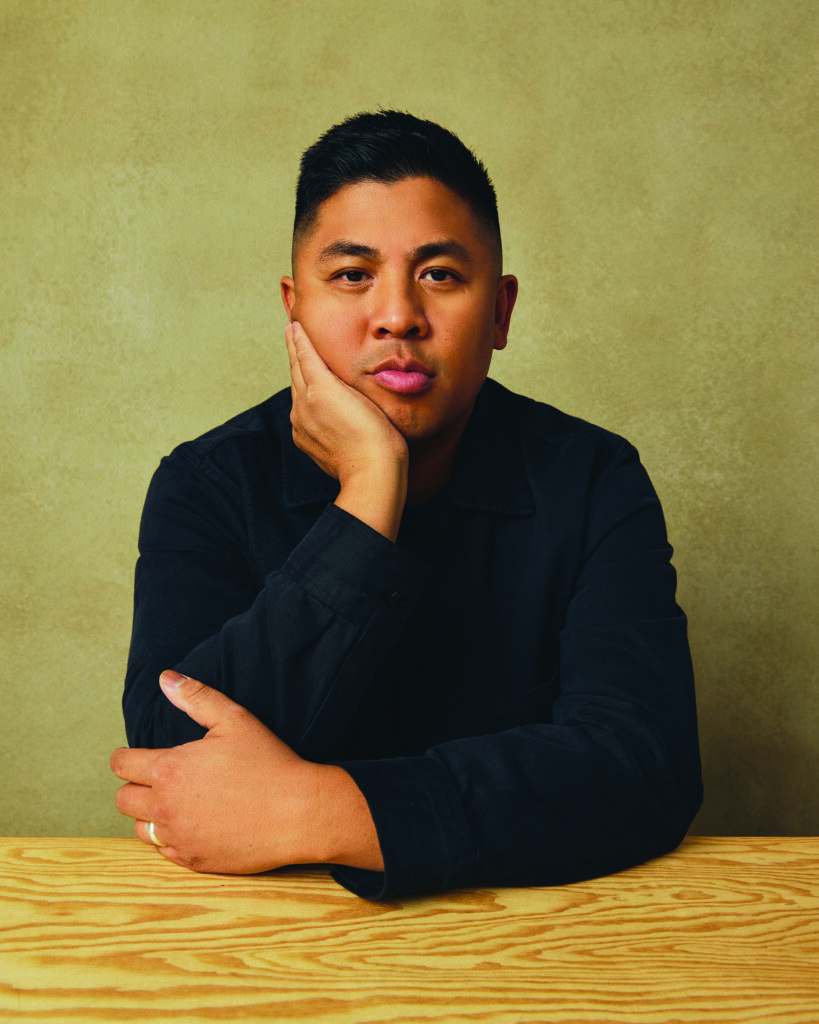
For years, Chuck Ortiz, founder and creative director of Back of House (BOH), has captured the essence of restaurant culture—both its triumphs and its hidden struggles. What started as a magazine exposing the unspoken realities of the industry soon evolved into something far more tangible: The Food Runners, a Toronto-based running crew designed for chefs, bartenders, and hospitality workers looking to break free from the cycle of long hours, late nights, and burnout.
Ortiz never set out to start a movement. But a decade later, The Food Runners has grown into more than just a running club—it’s a community. A space where industry professionals can connect, reset and prioritize their well-being. From securing early partnerships with major sportswear brands to a new collaboration with Smart Serve Ontario aimed at providing mental health resources, Ortiz is proving that the best ideas don’t just stay on the page—they hit the ground running.
MENU: You’ve been doing this for over a decade—what inspired you to start The Food Runners, and what has kept you going?
Chuck Ortiz: In 2014, I was running a self-published food magazine, Acquired Taste, and it was hugely inspired by the ‘underbelly’ of the food industry, in the style of Anthony Bourdain. The magazine was about diving into people’s stories about the industry—the raw, not-so-pretty stories and interviews—addictions that can come with it and the things a lot of my friends were, at the time, going through. I had the thought that, rather than exposing the underbelly, we should instead create something to help bring attention to it, but in a positive way that could help address it. I’ve been deeply involved in the food industry since 2007–08, not just working in it but also as a go-to photographer, so when this idea came up, I knew exactly who to tap into.
I approached Nike with the idea of creating an initiative to help chefs stay active. Initially, we considered basketball or another sport, but running was the most accessible—everyone has shoes, and all you have to do is get out and run. Nike loved the concept immediately, and since they were heavily promoting their run clubs at the time, the timing was perfect. We launched with a core group of about seven chefs, including Rob Gentile, Grant van Gameren, Rob Rossi, and Dustin Gallagher—industry names who helped spearhead the movement. From there, we hit the ground running—literally.
MENU: Were you a runner before this?
CO: No, not long distance. In high school, I was great at short distance, you know, like 100 to 400 meters, but running more than a kilometre would kill me. So, this was a new thing not only for the original run crew, but for me too.
MENU: Obviously, there’s a fitness and physical health component to this, but from what you’ve shared, mental health seems to be a major focus. From an organizational perspective, what is the broad mission of The Food Runners and why do people join the running crews?
CO: We’re creating a healthier outlet that supports overall well-being from multiple angles. Running is the foundation—it gets people moving, whether it’s a 1K, 5K, or even a marathon. There’s no pressure; everyone starts where they’re at, and we guide them along the way.
Beyond running, we provide access to additional wellness resources. For example, we collaborate with Othership, which offers meditation and contrast therapy (hot and cold rooms) to help stabilize the mind before the chaos of a restaurant shift. It’s about giving people a moment to reset before diving into a high-stress environment. And we’re also finalizing a content production program with Smart Serve Ontario for an initiative called Smart Serve Cares, which provides free mental health counseling and resources for our runners and others in the industry, providing greater access to support systems they might not otherwise have, and we want to work with them to help them to increase awareness.
The content series we’re planning will feature interviews with members of our run crews focusing on their stories, what they’ve gone through and their mental health journey. We want to highlight people’s stories through a really raw lens to address the stigma around mental health and mental health in this industry in particular. We want to get past the idea that chefs are rock stars or superhuman. I think we have to move past that narrative.
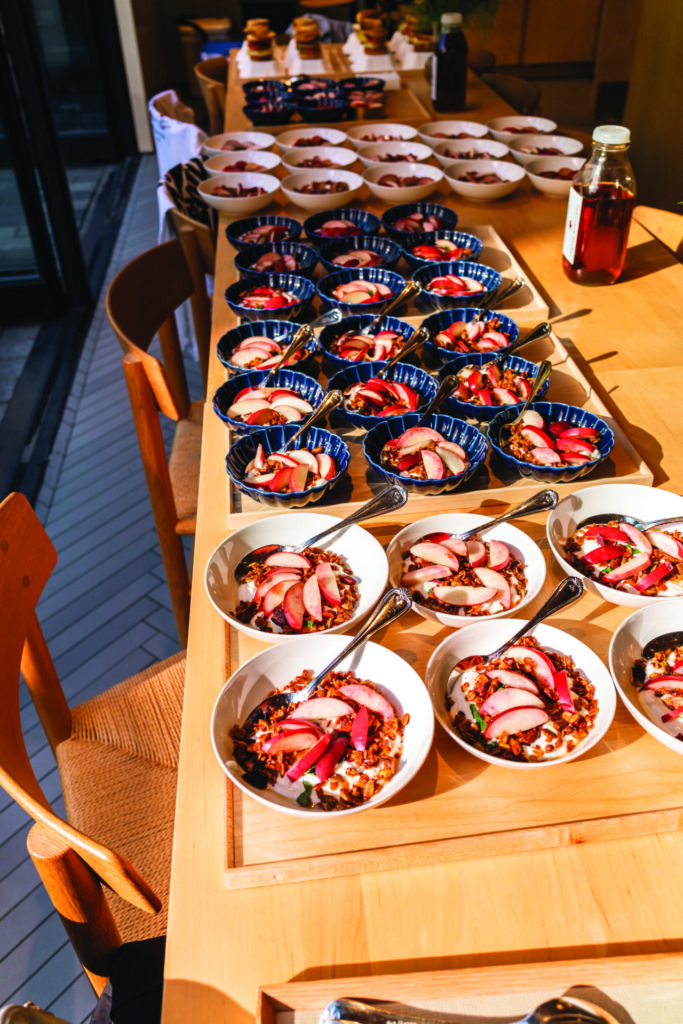
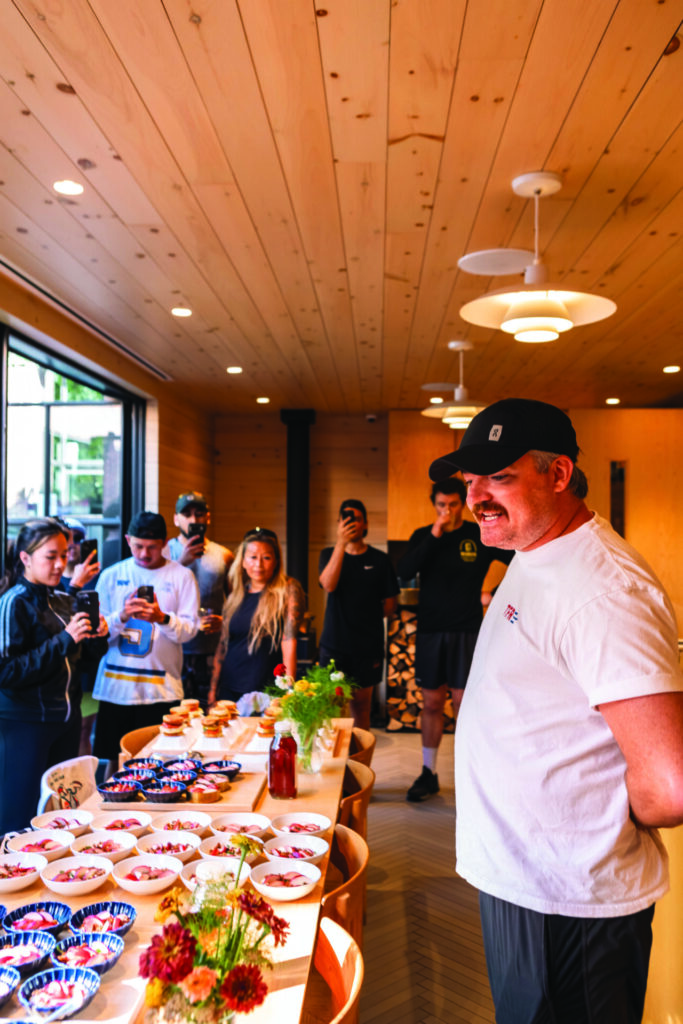
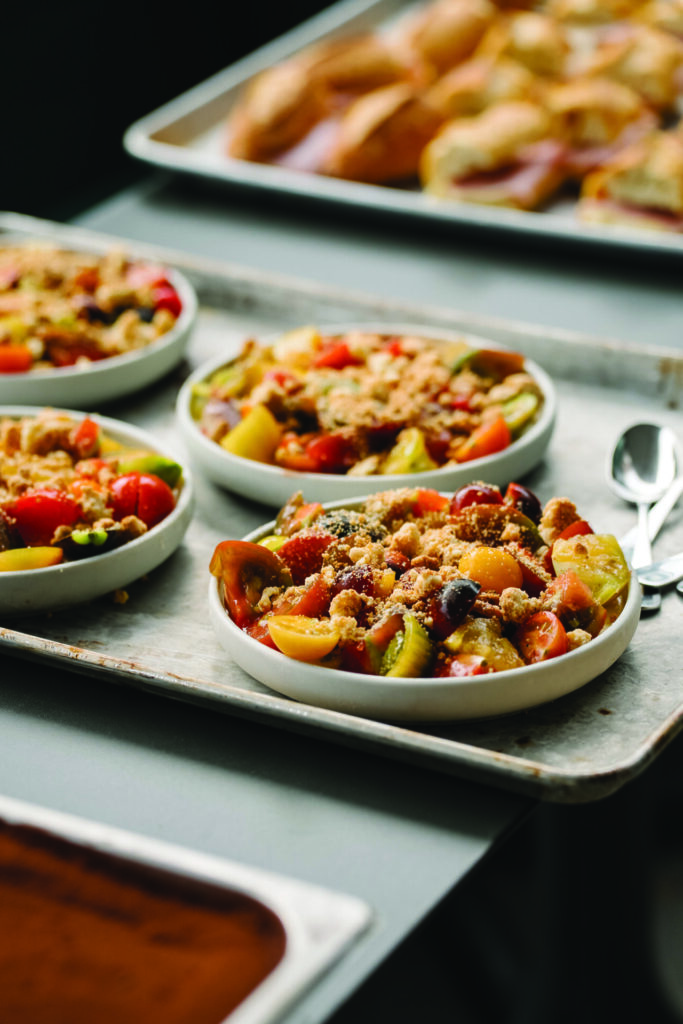
MENU: When you were running the magazine and immersed in the broader foodservice and culinary world, how did this issue first come onto your radar? Were people openly talking about mental health, or was it something you observed?
CO: Being in the industry, I saw friends struggling with heart issues and addiction. Late nights and post-shift drinks were the norm, and at some point, I had to stop and ask myself, “What am I really doing?” It wasn’t uncommon to be out at 3 AM, drinking, without considering the toll it was taking. One of the most influential chefs I know—someone who helped put Toronto on the global culinary map—has a well-documented story about suffering a heart attack and the challenges he faced as a young cook. It’s no secret in Toronto’s restaurant scene that many people are going through similar struggles.
MENU: Over the past decade, what impact have you seen The Food Runners have on its members and the community? Beyond the running itself, what have you observed in terms of personal growth, camaraderie, and overall well-being?
CO: Over the years, we’ve realized there are so many layers to the impact we’re having. At first, the idea was simple—get chefs running to improve their health and follow it up with a smoothie. But as time passed, we saw something much deeper happening. We’ve met people who have struggled with alcoholism and seen them achieve milestones like seven years of sobriety. Some have even credited Food Runners as one of the catalysts that helped them get there. Others have battled different addictions, and while I can’t speak on specific cases, I’ve seen firsthand how being part of this community has helped people take on those challenges. That, to me, is huge.
Beyond the physical benefits, Food Runners provides something the industry often lacks: community. It’s easy to feel isolated in this business, working long hours with little time to form friendships. Many people join not just to improve their fitness, but because they’re looking for a sense of connection and belonging. And now, with the addition of mental health support and counseling, we’re able to offer even more. The industry is still struggling, especially post-pandemic. The economy is uncertain, restaurants are facing challenges, and job security isn’t what it used to be. Whether you’re a line cook or a restaurant owner, these pressures affect everyone. The Food Runners isn’t just about running—it’s about creating a space where people can take care of themselves, feel supported, and know they’re not alone.
MENU: Do people normally join alone or with friends or coworkers?
CO: Some come with a friend or two, but most come alone, especially when they’re new. They want to see what it’s about, get a feel for the community, and then, naturally, they start bringing others. Some arrive with a friend or two, but it’s primarily an individual decision to show up. And, unlike other run clubs where groups tend to form within the larger crew, we emphasize running together as a collective. There are no cliques—just one community. That’s why we encourage people to ditch the headphones and stay engaged. It’s not just about running; it’s about connection. If you’re with us, you’re part of the team.
MENU: Has your growth mainly been driven by word of mouth?
CO: Growth has largely been driven by word of mouth. We’re not actively promoting it as a club people should join—aside from sharing our runs on social media. The beauty of it is that people come and go. Some join at a point in their lives when they need this kind of community, and then they move on to do incredible things. Others step in to take their place.
Not everyone from year one is still running with us, but they remain part of the family. They come back occasionally, sometimes even hosting runs. One great example is our friend Coulson Armstrong, who has been with us since the beginning. Every year, he puts together the best Refuel, and we often go to his restaurant for special occasions—anniversaries, Food Runners milestones, or major activations. He’s proud to be part of the crew—we call members like him the Food Runner OGs.
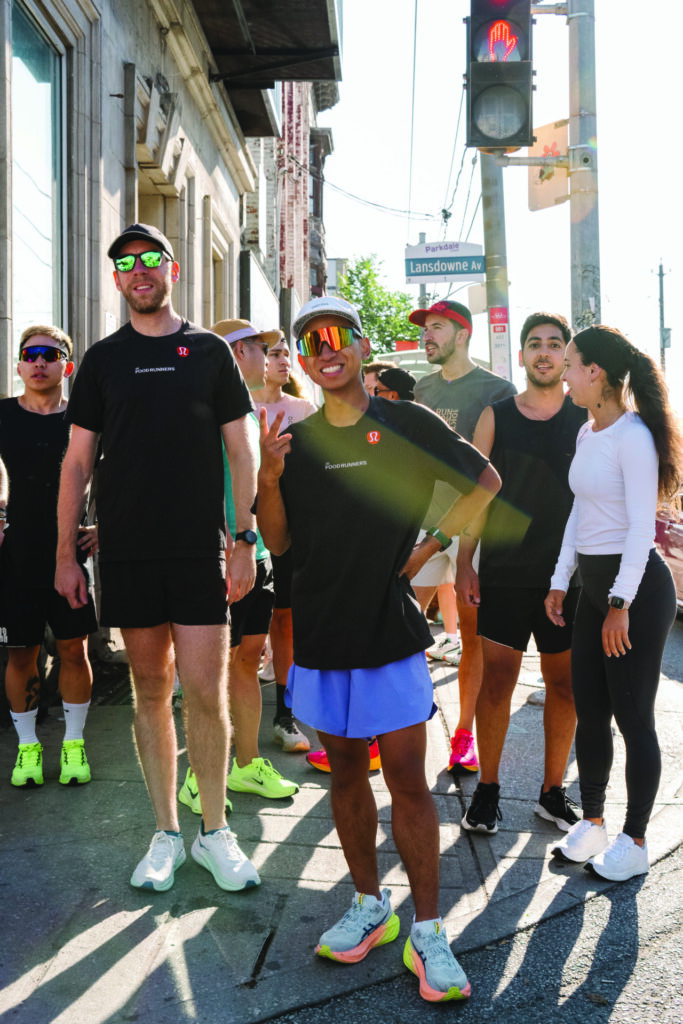
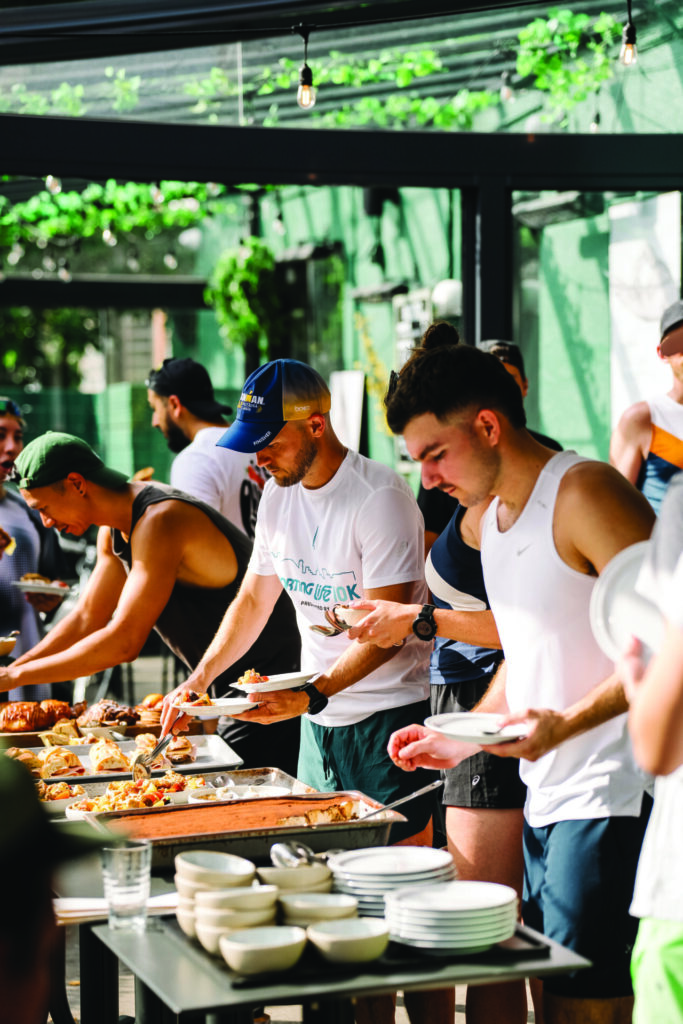
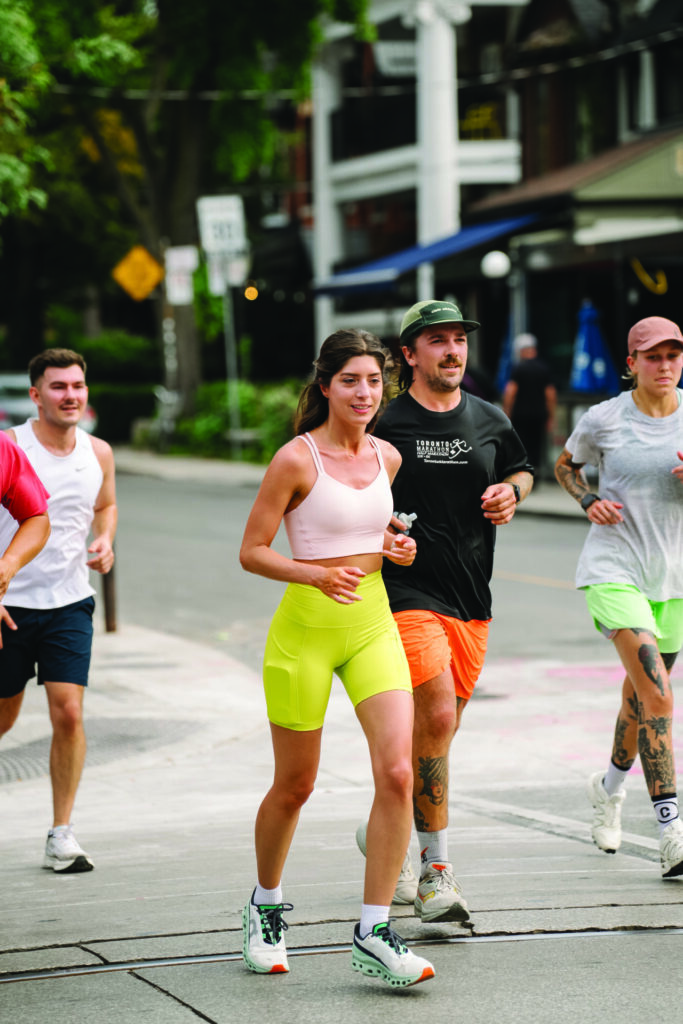
MENU: What are the people who join the run crews looking for, and what’s the onboarding experience like?
CO: The first concern people usually have is about the run itself—we get emails all the time from industry folks, especially chefs, who aren’t necessarily runners. The most common question is, “I’m not really a runner—am I going to be left behind?”
I always reassure them that running is just the entry point—it’s a way to bring people together. What they’ll really get out of it is the camaraderie, the community, and the conversations. And of course, there’s the food. We showcase ways to eat healthier, but not in the typical juice-bar, post-run smoothie way. We have some incredible chefs in our crew who push the boundaries of what healthy, nourishing food can be—offering dishes during Refuels you wouldn’t normally think of after a run.
Ultimately, The Food Runners is about more than just exercise. It’s about building relationships within the industry, learning from others, and finding ways to grow both personally and professionally.
MENU: Let’s talk about the Refuel. It’s clearly more than just a great meal at the end of a run. What’s the bigger purpose behind it?
CO: When we started, the goal was simple—give chefs a healthier way to start their day. After a run, we’d ‘Refuel’ with something nourishing. But over time, it became so much more. The Refuel evolved into a space for creativity, allowing chefs to reimagine what healthy eating could look like. It’s not just about smoothies or standard “healthy” meals. We’re showing that balance and creativity can coexist in food.
Beyond nutrition, the Refuel is symbolic. The industry takes a toll—physically, mentally and emotionally. This meal is a way to nourish not just the body, but the soul. It’s a moment to sit together, break bread and connect. There’s something deeply human about sharing a meal, especially with people you’ve just met.
It creates an instant sense of belonging.
MENU: The Food Runners started as a group of chefs, but over time, it has grown to include a more diverse mix of professionals. Obviously, chefs are still a big part of it, but has that shift made it harder to maintain a cohesive culture, or has it evolved naturally and successfully?
CO: It has grown naturally while still staying true to its original purpose, mainly because I’m very clear about our ethos. I make it a point to remind people that while we’re inclusive, this crew exists for the food industry—chefs, bartenders and others in hospitality. If someone outside the industry wants to join, I tell them to be mindful that they’re taking space that could go to an industry professional.
That said, non-industry participants still find ways to contribute, by hosting our Refuel sessions at their favourite spots or introducing us to restaurant owners who can support the initiative. Everyone who joins understands that The Food Runners is, and always will be, rooted in the hospitality community.
MENU: You’ve come a long way. Do you have plans to expand The Food Runners model in other cities?
CO: Right now, we get messages from people across Canada—and sometimes internationally—asking about starting their own Food Runners chapters. The challenge is finding the right city and the right setup to replicate what we do in Toronto. The key to making it work is having strong restaurant partners—whether a single restaurant, a group, or just industry leaders—who can drive the initiative. I can’t be everywhere, so each location would need dedicated run captains to organize weekly runs and sustain the community.
But this isn’t a franchise and it’s not about business—it’s about community and industry support. The culture we’ve built is specific, and finding the right person to lead in another city is tough. It has to be someone who isn’t in it for the spotlight, who understands that this is about chefs and restaurant workers, not personal branding or profit. I’ve never made a cent from this, and that’s intentional—this is about giving back to the industry that’s given me so much.
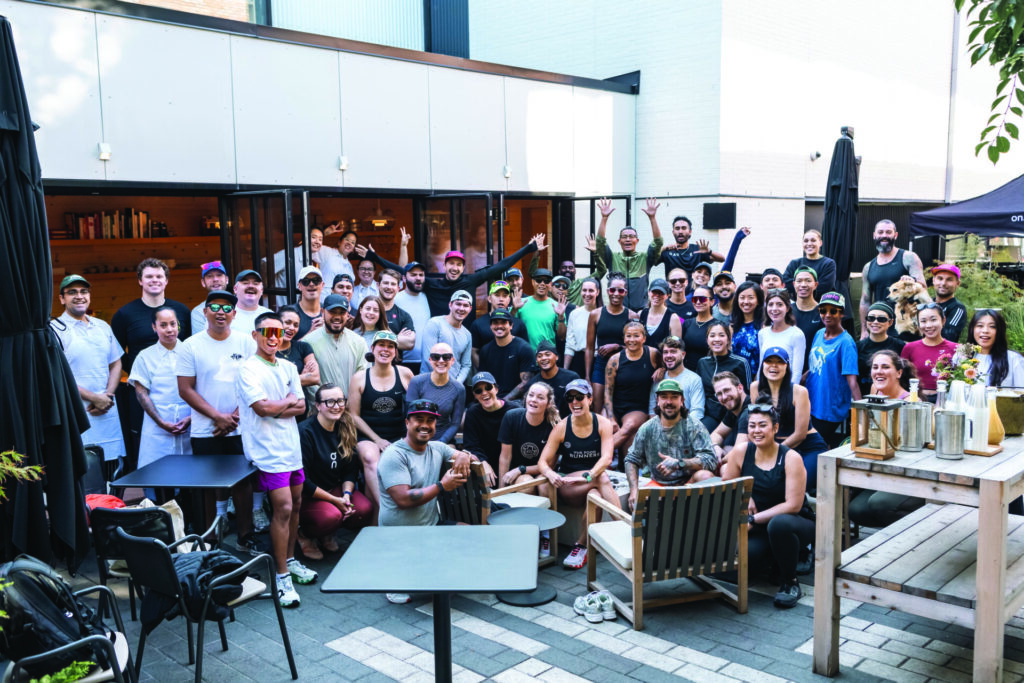
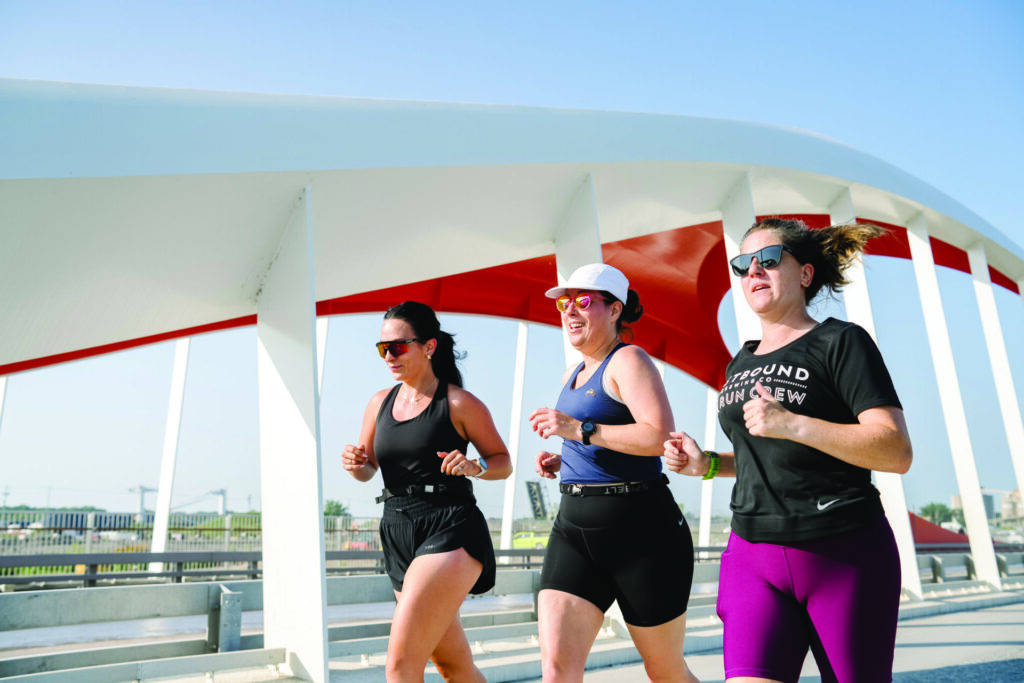
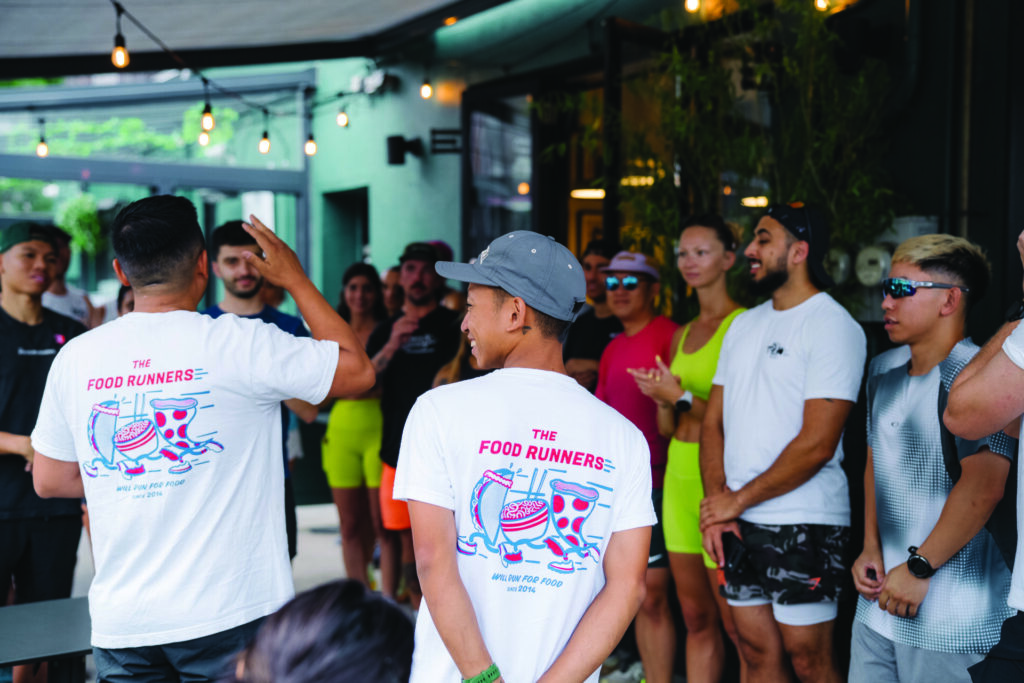
MENU: What do you feel The Food Runners has accomplished in terms of bringing mental health and wellness conversations to the forefront? Not just on a broad societal level, but specifically within your community—the people you run with and serve?
CO: I think the biggest impact we’ve had is creating a space where people feel comfortable being open about their mental health and overall well-being. The industry has long had a tough, “bro-ey” culture where everyone pretends they’re fine, no matter what they’re dealing with. I think we’ve helped shift that mindset. Every week, when we gather, there’s always someone going through something—and they know they’re not alone. Just having a space where people can talk, share, and support each other has been huge. Destigmatizing these conversations is one of the most important things we’ve done.
MENU: Have you found yourself becoming a go-to person for people in the industry who are looking for support? If so, has that been difficult for you, or does it validate the need for the original Food Runners concept?
CO: It’s not about people saying, “Oh, you have an issue? You need to go to Chuck Ortiz.” That’s not the goal. I want The Food Runners to be the thing people turn to, and if my role means being more visible and leading the charge, I welcome it because my priority is to help people. I truly feel called to do this. I’ve been committed for years, even driving in from Stouffville every week, because I feel a deep responsibility to this community.
Also, I see a future where The Food Runners grows beyond me. That’s why we’ve brought on two new run captains—we’re laying the foundation for something that can scale. And I would love The Food Runners to be top of mind for industry employers. When they’re thinking about staff wellness, onboarding or benefits, I want our initiative to be part of that conversation. We want their staff to be encouraged to come to the runs—not just for fitness, but for the community and mental health support we provide.
The Food Runners has been completely free for 10 years because we believe in making it accessible to industry professionals who work incredibly hard, and often don’t have benefits. We’ve had great partners over the years—Nike, Lululemon, and others—who have supported us in various ways. But the reality is, whatever isn’t covered comes out of my own pocket, through my company. I do it because I believe in this so deeply. But for us to grow and reach more people, we need more partners—brands willing to support the people behind the scenes who make this industry thrive, the chefs and hospitality professionals who create and deliver the incredible events that attract some of the world’s biggest companies.
MENU: Your humility and dedication—10 years of doing this with no financial gain—is incredible. What drives you to keep going?
CO: Thank you. Honestly, running helps me with my own personal health, you know? So, that’s what I get out of it—I get to run.



